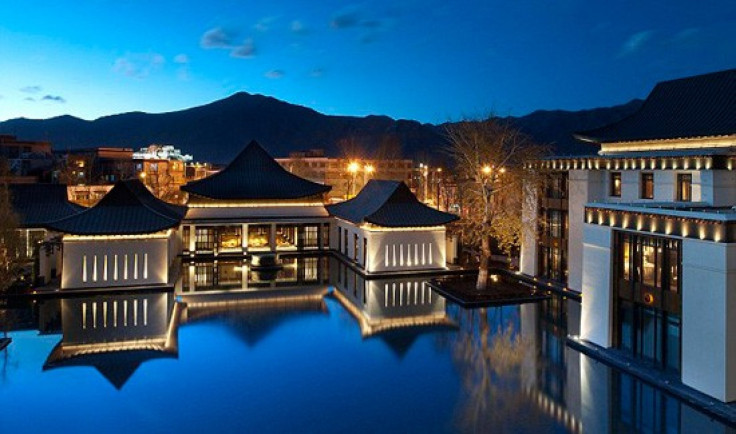Major Hotel Chains Eye China Hungrily

Hospitality giants are betting big on China.
A press release from Starwood Hotels (NYSE: HOT) on Wednesday showed that it intends to open a further 100 hotels in mainland China, Hong Kong, Macau and Taiwan over the next 5 years. That would almost double the company's current number of 103 hotels and resorts in the Greater China region.
Starwood -- which owns such iconic chains like Westin, the W Hotels, Sheraton and St. Regis -- first began operating in China in 1985 with the opening of the Great Wall Sheraton in Beijing.
The company expects to open 24 new hotels in the region by the end of this year alone, generating some 10,000 new jobs in the country. Hotels in China represent nearly 10 percent of Starwood's 1,103 properties. Starwood had a net income of $128 million in the first quarter of 2012, compared to just $28 million in the first quarter of 2011. The company expects its EBITDA (earnings before interest, taxes, depreciation, and amortization) to be over $1 billion in 2012.
But Starwood faces competition from a number of multinational chains. Competitor InterContinental Hotels Group (NYSE: IHG), which owns the Holiday Inn and Crown Plaza chains, is the largest international hotel operator in China to date and had more than 150 hotels in the country at the end of 2011. In mid-March 2012, IHG announced its plans to create a new luxury hotel chain in China called HUALUXE Hotels and Resorts. The company envisions the division establishing itself in over 100 Chinese cities over the next two decades. Along with other expansions, the company has more than 140 new hotels being developed in the large and medium sized cities across the country. IHG had $409 million in revenue and an operating profit of $118 million in the first quarter of 2012.
The Mandarin Oriental (London: MDO, Singapore: M04) luxury hotel chain, owned by Jardine Matheson Holdings Limited (London: JAR, Singapore: J36), is currently developing four new hotels in Mainland China (as well as one in Taipei), more than in any other region of the world. It previously only operated a single hotel on the mainland, a resort at the tropical beach destination of Sanya on China's Hainan Island, but had five hotels between Hong Kong and Macau. In 2011, Mandarin Oriental's earnings went up by more than 19 percent to $163 million between 2010 and 2011, its subsidiaries had over $89 million in operating profits in that period.
The decision by major international hotel companies to expand in the China market is mostly being driven by confidence in the economic growth of the country and its growing pool of upper class travelers.
Stephen Ho, the President of Starwood's Asia-Pacific operations, said, As demand grows, we are seeing a change in luxury consumption as travelers become more connected, more diverse, and more sophisticated. The same trends can be observed with our Chinese travelers.
The Global Business Travel Association said in May 2012 that it expected China to surpass the U.S. as the world's biggest destination by 2015. Business travel spending in China will increase by 17 percent this year to $202 billion, according to the travel management organization. By comparison, U.S. spending on business trips in 2011 was around $250 billion -- but America only has one-fourth the population of the Middle Kingdom.
The Chinese National Bureau of Statistics and the United Nations World Travel Organization expect the number of hotel rooms in China to reach 9.1 million before 2040, and eclipsing the U.S.' 6.1 million by 2025.
© Copyright IBTimes 2024. All rights reserved.











